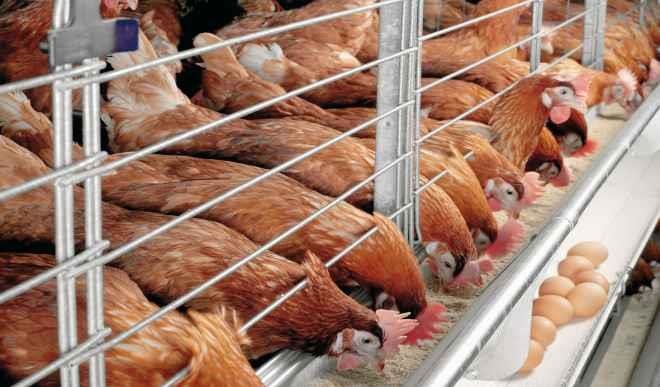Why there’s no enough Shika Brown in Nigeria – Expert
Professor B I Nwagu, a geneticist and breeder in charge of Shika Brown at the National Animal Production Research Institute (NAPRI) in Shika, Zaria, has revealed that the low production and distribution of the Shika Brown poultry breed is due to the low incubation capacity of the institute. “The incubators we are running on are […]


Professor B I Nwagu, a geneticist and breeder in charge of Shika Brown at the National Animal Production Research Institute (NAPRI) in Shika, Zaria, has revealed that the low production and distribution of the Shika Brown poultry breed is due to the low incubation capacity of the institute.
“The incubators we are running on are very obsolete and that is a very big problem. Our total incubation capacity is 45, 000 eggs per hatching period, and you know we have multi-stage hatching, that means we put them in different stages in the incubator; you cannot put all at the same time. So we need incubators and hatchers, the hatchery we have is not modern,” he lamented.
He pointed out the numerous challenges facing the institute and the need for both government and the private sector to look inward and commercialise the indigenous breed of pullets that would save the country the money expended on importation.
Prof. Nwagu noted that feeding the birds was a problem because of inadequate funding from government, in addition to the epileptic power supply and very low pen capacity.
“Power is also a problem; you cannot depend on the power company in anything you’re doing because there’s no certainty.
“At times they give us drugs on credit and when we cannot pay they would not give us again. Same thing with feed, you get from a contactor and you don’t pay, next time he won’t give you,” he complained.
He alleged that some big poultry farms were in the business of laundering money under the pretext of importing foreign breeds.
“There’s a lot of politics in the poultry industry; some of them launder money in the name of buying chickens abroad and that is why when you talk to them about buying here and developing what we have; they don’t want to hear that. Government is already doing something by banning importation of poultry and poultry products, but people still try to circumvent that and smuggle,” he added.
The breeder stressed the need for government to embark on special interventions in core areas rather than holding onto the annual budget system.
“This is not the first time we are talking to the Federal Government about funding; you can’t depend on that envelope thing, it cannot sustain production and distribution of Shika Brown,
I think government needs to embark on special intervention on NAPRI in terms of funding to overhaul their facilities which include pens, generators, boreholes, etc.” he advised.
Prof. Nwagu pointed out that it was not NAPRI’s mandate to commercialise the Shika Brown, but that private investors in the poultry industry needed to procure the Grand Parent Stock (GPS) from the institute, multiply and distribute for use by the average Nigerian poultry farmers.
“What is expected is that NAPRI has develop Shika Brown, the private sector should come over and take it from NAPRI and pay royalty, but they are not forthcoming and that is a very big constraint.
“The market is available but the problem is when you are unable to meet demand and no private company operates in that area. At best, what we can produce is 5, 000 birds per incubation cycle and that is not good enough,” he explained.
Again, the expert noted that the constant importation of foreign breeds of pullets drain the country’s foreign exchange and introduced diseases which were not indigenous to Nigeria.
He added that Shika Brown allowed farmers to have savings because less money was needed on drugs, adding that avian influenza (bird flu) had so far not been recorded in farms where the birds were kept.
Prof. Nwagu noted that the Shika Brown, which was an egg-laying chicken, took between 18 and 24 weeks to reach full maturity and began laying eggs.
He confirmed that Shika Brown could lay 290 to 300 eggs per annum and that unlike in exotic breeds where acclimatisation was difficult, Shika Brown could be kept in any part of Nigeria.
